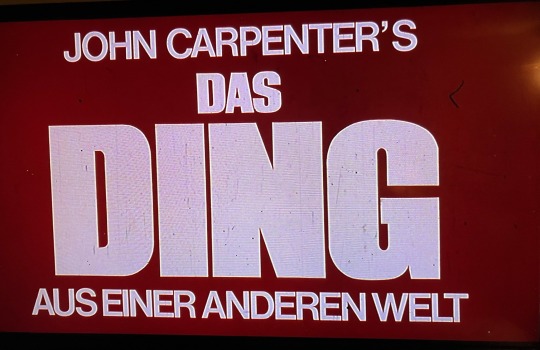Text
wow players having to stand in lines for a quest because a relevant npc can only talk to one player at a time. is the funniest image on the planet

245K notes
·
View notes
Text
Has it already been proposed that Hatsune Miku is essentially the digital age successor to the cultural niche originally established by Betty Boop, did I see that somewhere or is it a weird thing my autism told me
16K notes
·
View notes
Text
ALLUSION ANALYSIS: SUMMER & RAVEN
I always wanted to do a deep dive on Summer & Raven’s characters, and after that finale I think it’s time. So as we all know RWBY characters are based on fairy tales & stories of real life. I want to dissect the inspirations for Summer & Raven & analyze why it’s so interesting that these two are paired together.

So Summer’s base allusion is from the poem The Last Rose of Summer. Her grave has lines from the poem, her name, etc. The actual poem is an allegory for death & the acceptance of it. “Thus Kindly I Scatter” refers to the act of peacefully dying and being returned to the universe, not to mention her intentional ghost like appearance.

As for her secondary allusion, well, she basically fills all the remaining roles in Little Red Riding Hood. She’s the (grand)mother Ruby visits, the wolf with the shiny big eyes, & the brave huntsman with the ax. This telling of Little Red is a lot more Grimm than the original, pining Summer with a not so happy ending.

Now onto Raven. A lot of people think her base allusion is Huginn, one of Odin’s all-seeing ravens. Although this is true, it is not her base allusion, but her secondary. Secondary allusions only work when another character is involved. She can’t be Huginn without Munnin (Qrow) or Odin (Oz). Odin’s ravens were meant to represent his eyes, so when Huginn left, he lost one of his eyes. Similar to how Cinder’s lost eye was revealed after her fight with Raven.

Her real base allusion is of the poem The Raven by Edgar Allen Poe. The poem is about a talking Raven consulting a man about losing his loved one. Both of Raven’s allusions come full circle within her fight against Cinder in Volume 5. Cinder’s theme song has been teased since her introduction & it ended up being a diss track about her downfall and telling her to accept her death. The entire scenario played out as if this was Cinder’s final fight. And of course, Raven was there. And you know who else died there? Vernal. Raven officiated her passing by closing her eyes for her, one again linking Raven with death, just like the poem.

Now, we have a theme here. Both Summer & Raven take cues from poems about death & passing & acceptance. With all of this information, rewatch their scene again. Raven, the death doula, is sending Summer, the Last Rose, to her death, and Summer is accepting it. That’s why she left the rose pendant with Ruby. Deep down she knew there was a major chance that she wouldn’t come back. But she accepted that fact. She then traveled with Raven to hopefully put an end to Salem, but this is where both of their stories come to a plot hole.
How can someone accept death if they can’t die??
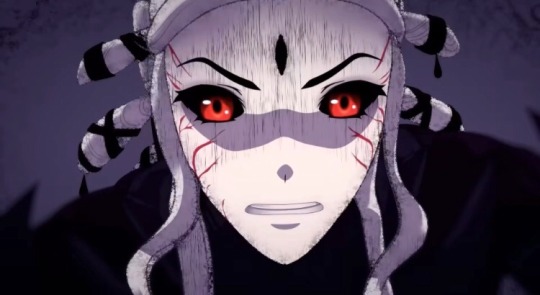
868 notes
·
View notes
Text
121K notes
·
View notes
Text
best moments in gaming journalism
journalist gets real yakuza members to play yakuza 3 and asks for their opinions on its authenticity
that’s it
322K notes
·
View notes
Text
everyone knows that space is very very cold, and the sun is very very hot. so i assume there's a bit of space kind of near the sun which is just right. balmy space
57K notes
·
View notes
Text
Please dont tell me the boarding schools name is the american hogwarts one
In The Gloomy Depths [Chapter 1: Amethyst]

Series summary: Five years ago, jewel mining tycoon Daemon Targaryen made a promise in order to win your hand in marriage. Now he has broken it and forced you into a voyage across the Atlantic, betraying you in increasingly horrifying ways and using your son as leverage to ensure your cooperation. You have no friends and no allies, except a destitute viola player you can't seem to get away from...
Series warnings: Language, sexual content (18+ readers only), parenthood, dolphins, death and peril, violence (including domestic violence), drinking, smoking, freezing temperatures, murder, if you don't like Titanic you won't like this fic!!! 😉
Word count: 5.2k
💜 All my writing can be found HERE! 💜
Tagging: @arcielee @nightvyre @camsdaae @mrs-starkgaryen @gemini-mama
Let me know if you’d like to be added to the taglist 🥰
A note goes sharp, and you swim up through colorless currents—indistinct conversation, an iron-grey draft each time the front door opens, cigar smoke like fog over the ocean—and turn to the viola player. His eyes have caught on the place where your left hand rests on the table by a glass of pear cider, still cold from the icebox, misty with condensation. Rain pours outside. Logs fracture and hiss in the fireplace. Your gown is thick velvet, indigo like the night sky, and the ruffles of your sleeve have slipped back to reveal the evidence roped around your wrist: shadows of trapped blood, rubies that sicken and turn to sapphires and amethysts.
You hurriedly adjust your sleeve. Now the viola player’s eyes are on yours, an overcast blue and improperly direct, and something flies between you: his shock, your shame. You look away and pretend to ignore him. His horsehair bow finds its rhythm again, a tempo like a racing pulse. The quartet is playing The Wild Rover.
Daemon hasn’t noticed. He has ensnared the reporter entirely, here in O’Connell’s Bar in the heart of Galway, just across the street from Eyre Square and only a few blocks west of the Docks and the North Atlantic Ocean. The young man writes for The Irish Times and has traveled from Dublin to interview your husband, once a celebrated newcomer but soon departing and taking you with him. Five years ago a storm blew him in; now the gleam of distant treasure catches his eye and beckons him like the moon calls the tides. He has been this way all his life. You were mad to believe he’d change.
“Lord Targaryen,” the reporter says with his felt-tip pen hovering over his notebook, gazing at Daemon worshipfully, firelight dancing on both of their faces. You glance at the viola player again. He’s still watching you, and this is bad. “You’ve been described as a cowboy by numerous publications and business associates. Do you consider that a compliment?”
Daemon chuckles, smirking and imperious. He puffs on his pipe, elbows propped on the table. His eyes are a deep-set reptilian green, emeralds glinting from the mouth of a mine. Strands of dark blonde hair fall roguishly down over his forehead. “Oh, it’s a massive compliment, isn’t it? A cowboy eschews the safe and the predictable. A cowboy makes his own way in the world. My father was a duke, and now my brother is a duke, and one day my nephew will be a duke, God help us all. And so I always knew that if I wanted anything for myself, I’d have to go out and find it.”
The reporter is smiling, enraptured. He asks, already knowing the answer: “And what was it you found?”
“In the Wah Wah Mountains of Utah, we discovered red beryl.” Daemon talks with his hands, magnetic fields, incantations, spells that once worked on you. “It’s exceptionally rare and a gorgeous stone, high color saturation, not as hard as a diamond but durable enough for jewelry, essentially a blood-colored emerald. I was twenty-five years old and had just put together my first small mining expedition, and here we were sitting on the only known supply of red beryl on the planet. And it was then that I realized that there are these sorts of…natural monopolies that exist scattered across the globe, gemstones that can be found in only one location, and thus if you are the man who owns the mine…every single stone must pass through your hands before it ends up in retail establishments in London or Paris or Milan or wherever.”
“And so you took the lesson you learned from red beryl and applied it to other minerals,” the reporter says as he scribbles in his notebook.
Daemon grins, puffing on his pipe, exhaling smoke like a dragon. And how remarkable he is to have agreed to meet here in this pub like a common man, so unpretentious, so unafraid of the world’s dirt, effortless and yet untouchable, and this is why his miners love Daemon, why they will break their spines and poison their lungs for him. “We kept the Utah mine, of course, and bought up rights to thousands of acres of land surrounding it. I hired more workers. And then I investigated reports of mysterious, unnamed, brand new stones that had been stumbled upon in far-flung places, untamed by civilized men, the earth just waiting to be slit open and butchered like a fat hog. In Madagascar, we found Grandidierite, a bewitching blue-green, the Indian Ocean in miniature, crystalized form. In Tanzania, we discovered Tanzanite, halfway between an amethyst and a sapphire.”
The reporter nods to you as he says: “I believe Lady Targaryen is wearing some this evening, is she not?”
“Indeed,” Daemon replies without much interest. You touch your fingertips to your teardrop-shaped earrings and give the reporter a polite smile. You steal a glimpse of the viola player; he isn’t staring at you anymore—a blessing, a relief—but he frowns distractedly as his bow glides over the strings. “In Australia there was black opal, and in the Dominican Republic we were the first mining operation to encounter Larimar, and then…well, then I heard of Connemara marble.”
“Native to Ireland,” the reporter says proudly. “The lone quarry that’s still producing is right here in Galway.”
“So of course that intrigued me.” Daemon taps on the tabletop with his right hand, and now he is watching you, curling lips, taunting eyes. “And when I crossed the Atlantic to acquaint myself with this quarry and inquire into purchasing it, I was intrigued by the quarry owner’s daughter as well.”
His pen scratching against parchment; black rivers of ink filling up the page. “How would you describe the courtship?”
“Brief,” Daemon says, then laughs. He points to you with his smoldering pipe. “How about you, dear? How would you describe it?”
“Flattering,” you answer honestly, and the reporter makes his notes. “Daemon already had a reputation by then. A captain of industry, a staggering success story, a man who refused to rest idly on his family’s titles, which he could have easily done.” And a man who also refused to marry, rejecting Rockefellers and Morgans and Astors, duchesses and countesses, but asked your father for your hand in marriage after only a few weeks of tours of the quarry and dinners set alight with charismatic retellings of his travels. You knew the Connemara marble was part of the allure, but you took this as a common interest rather than the only thing Daemon wanted from you. Well…one of two things.
“You’ve resided in Galway ever since,” the reporter is saying to Daemon. “Barring a few trips for business. But that is about to change.”
Daemon sucks on his pipe. “I’ve received a very generous offer from Tiffany & Co. in Manhattan. They’ve been around for almost a century, did you know they supplied the Union Army with swords and surgical tools during the Civil War? Real patriots. Not afraid to get bloody. They want to expand into the sale of colored gemstones, not just diamonds and pearls and gold, the same unimaginative pieces peddled by their competitors. And after some long and arduous negotiations, Tiffany has agreed to pay a fair price for the exclusive rights to specimens originating from my mines, and I have agreed relocate to New York City for the foreseeable future to consult with them as a gemstone expert.”
“It’s my understanding that you have family in New York too, Lord Targaryen. Perhaps a reunion is part of the appeal of a move across the pond.”
“Oh, I wouldn’t assume that,” Daemon says impishly. “I haven’t seen Alicent Hightower or her children in years and years. I wouldn’t even know them if I passed them on the street.”
“Is that right?” The reporter’s pen hovers uncertainly over his notebook; he doesn’t think this is the sort of familial disharmony that should be printed in a newspaper.
“But my wife and I will have some company for the voyage,” Daemon continues. “My niece Rhaenyra and her charming husband Laenor will be joining us on Titanic. They’ve been on holiday in the Mediterranean and have several social engagements on the East Coast before they return to summer in England with my brother.”
“Viserys Targaryen, the 9th Duke of Beaufort.”
Daemon grins, not kindly at all. “One man earns a title, eight others wear it.”
The reporter shifts awkwardly in his chair. It’s not the sort of joke he’s allowed to laugh at. Changing the topic, he looks to the string quartet, which is now playing Danny Boy. The viola player’s eyes flick to you; you drink you pear cider and pretend you are unaware. “You’ll be sorely missed in Galway. But what a proper Irish sendoff you’re receiving here at O’Connell’s tonight!”
“Yes,” Daemon muses, the bit of the pipe in his mouth. “A week from now, tugboats will be hauling us out of Cork Harbor and into the Atlantic Ocean, perhaps never to return.”
You shudder as a man enters the pub and a cold draft blows through you. You are terrified of ships, tiny metal buckets at the mercy of bottomless blue, unnatural incursions into inhuman spaces. You have sailed twice before with your parents—once to Le Havre to visit Paris and again on a cruise of the Aegean—and both times you were consumed by visions of water rising up over your feet, bodies thrashing in the waves, bones turning to silt. You don’t want to cross the Atlantic. You don’t want to leave home.
“You look a bit familiar, boy,” Daemon says, and you realize he’s talking to the viola player. You startle, then are relieved to see that your husband has only a dim curiosity in the musician. The reporter has bored him, and Daemon’s eyes are wandering. He is a man of short and restless attention. You have learned this the hard way. “Have we met before?”
The viola player—early twenties, around your age, sandy blond hair and a beard trimmed close to the skin—pauses his fiddling as his three companions carry on. His accent is English, not Irish. “Well I’ve played all over Ireland, sir. All over Europe, in fact.”
“Were you by chance at the McPherson wedding back in February?”
You don’t believe he was, you think you’d remember him; but the viola player nods eagerly. “Yes sir, that was me.”
“Ah! That was a fine night. Excellent duck. Wasn’t the duck good, dear?” But Daemon only half-listens for your response. He has turned back to the reporter and is recounting how he and his expedition hacked through the jungles of Tanzania to reach the location of suspected gemstone deposits, how they endured attacks from crocodiles and chimpanzees and burned up from fevers.
“Please excuse me for a moment,” you say as you rise from the table. The reporter scrambles to his feet to stand as decorum demands.
“Yes yes,” Daemon replies abruptly, not looking at you, then continues his stories.
You escape from the pub through the front door and stand beneath the awning just out of the rain, watching the reflections of streetlights glow in puddles like stars. Across the street in Eyre Square, a public park established in 1710, shadows of ash trees rock in the wind. With trembling fingers, you fumble a Kerry Blue and your cigarette holder out of your black handbag, then realize you don’t have a lighter. Someone else always does that part for you. You sigh and stare out into the rain, taking deep breaths of Irish night, early April, cold and wet and green, the only air you know how to take painlessly into your lungs, blood, bones, the dark damp earth that built you. You cannot imagine living amongst metal skyscrapers and rumbling automobiles instead of verdant rolling hills dotted with sheep.
You hear the pub door open, and you assume it is one of the waiters or perhaps Rush—Edward Rushton, Daemon’s valet and bodyguard, ever-watchful and unwaveringly stern—bringing you the black mink coat you left inside. But to your horror, it is the viola player, carrying his instrument by its neck. You gape at him as rain continues to fall.
“Hi,” he says.
You are clutching your handbag, a cigarette and holder still tucked between your fingers. “What are you doing?”
“I just…I was…uh…” He spots the cigarette. “Oh, do you need a lighter? I have one, hold on…” He begins rooting around in the pockets of his olive green tweed jacket.
“No, I don’t need a lighter,” you snap, glancing anxiously at the door. “I need you to go back inside.”
“Wait a minute, I wanted to—”
“Why are you speaking to me?” Your eyes are wide and petrified, your voice is a sharp whisper. No musician has ever addressed you beyond pleasantries: Good morning, good afternoon, good evening, thank you ma’am, my pleasure ma’am. “What’s wrong with you?”
“Look, I came out here because…I just wanted to ask…” He struggles to find the words. His eyes fall to your left wrist, now fully obscured by the ruffles of your sleeve, then return to your face. “Are you okay?”
“What?”
“Do you…you know…do you need some kind of help or something?”
It’s improper, it’s unthinkable, it’s dangerous. “You’re deranged,” you say as you breeze past him towards the door. “You’ve clearly escaped from an asylum somewhere. I wish you all the best in your recovery.”
He does not grab you—that would be absurd—but he does get between you and the front door of the pub. “Wait, please, I’m sorry, I’m not trying to be rude or to overstep or anything, I’m trying to see if there’s anything I can do—”
“You will make it worse for me,” you hiss, and only then does the viola player go quiet and let you pass. You shove by him into O’Connell’s Bar.
Back at the table, Daemon and the reporter are engrossed in conversation. When you rejoin them, neither of the men take any notice of you beyond the reporter’s momentary rise to his feet. After a minute or two, the viola player returns to the quartet and slips seamlessly into the song they’re playing, Star of the County Down. You gaze into your pear cider, determined not to glance at him even once.
Daemon is saying as the reporter jots franticly: “I am reminded of something I read once in a French fashion critic’s guide from the 1870s. In the gloomy depths of the mineral world, stars are concealed that rival in their beauty those of the firmament. The fresh splendors of dawn, the sun’s incandescent rays, the magnificent sunsets, the brilliant colors of the rainbow, all are found enclosed in a morsel of pure carbon or in the center of a stone. Not everyone can see the potential, not everyone has the skill or the willpower to move the earth and free the treasures trapped beneath. But I found stars no one else knew existed. And my work isn’t finished yet.”
~~~~~~~~~~
At home in Lough Cutra Castle, your family’s estate since 1817, your parents are asleep and Fern is waiting up for you and Daemon, yawning into the back of her hand to try to hide it. She is your maid but she was hired by Daemon, and she scurries around the property like a mouse, eternally picking up toys and articles of clothing and papers that have slid off of tables, head bowed, footsteps so light you often don’t realize she’s walked into a room until she’s spoken.
“Care for some tea, my lady?” Fern asks as she takes your mink coat. Daemon goes directly to his study; you watch him leave with some feeling you couldn’t name, loss, relief, loneliness, resignation.
“No, thank you, Fern. I’m exhausted. Is Draco upstairs?”
“He is,” she says, but with hesitation, as if she is sending you into the lion’s den. You know what that means. You climb the staircase and find him in his bedroom sound asleep, four years old, surrounded by an army of teddy bears. Bears are his favorite animal; he likes the way they roar and brandish their teeth. He is named after the crest of Daemon’s family; Draco is the Latin word for dragon. His hair is white-blonde, a Targaryen trait. As they age it fades to an ordinary sand-like color, and by the time they are middle-aged—Daemon is forty, nearly two decades older than you are—their hair is a blonde so dark it’s almost brunette.
You stand in the doorway watching Draco for a long time. When you think of him, this is the image that comes to mind: your son across a room, or a lawn, or a garden, and you lurking on the periphery, longing to be a part of his existence, feeling so palpably unneeded. Already, he is becoming a stranger. He thinks it’s funny when Daemon insults people and breaks things. He stomps his little feet when he doesn’t get his way and rips flowers from the garden, tosses rocks through the windows of the greenhouse, hurls sticks at hissing geese.
“He’s asleep,” Dagmar says as if she’s scolding you. You whirl to see her behind you in the hall, glowering with those icy Nordic eyes, her hair grey and twisted into a tight bun, her face angular and cold-blooded. Legend has it that Saint Patrick expelled all the snakes from Ireland; you think he must have missed one.
“Yes, I can see that.”
“You’ll wake him.”
“I certainly won’t.”
“A boy that age needs his rest.” And this is how Dagmar has been since Draco was born: You can’t hold a baby like that, you can’t feed a baby like that, you can’t play with a baby like that, never showing you how to do things but only alienating you further and further until you looped around on some hopelessly remote orbit like Neptune circles the sun.
“Yes. Like I said, I won’t disturb him.”
But she does not leave; she only scowls at you with her bony arms crossed over her chest. She is ancient; she was Viserys and Daemon’s governess when they were boys, and your husband wrote to her immediately after Draco was born. She idolizes Daemon. The three of them are a family unto themselves, sardonic and spiteful and fiercely loyal, an oath you can’t figure out how to break. She wins this battle, as she’s won them all. It is not a war but an insurgency, a perpetual struggle for independence, sabotages and hunger strikes that amount to nothing. You retreat from Draco’s doorway and go to find Daemon in his study, bent low over his desk and sketching designs for jewelry men will buy for their wives, sisters, mothers, daughters, mistresses.
He glances over at you impatiently. “What is it?”
“You promised I’d never have to leave Ireland.”
Daemon shrugs, smiling wryly. “And yet…”
“Draco and I could stay here,” you say, as if this has not already occurred to him.
“And people would say my house is not in order. How am I to command the respect of American businessmen when my own wife does not obey me?”
You are desperate. “Half the year,” you plead. “I’ll spend winters in Manhattan and summers here.”
“Absolutely not.”
“What if I won’t go?”
“I don’t see how you’d accomplish that,” Daemon says, as if he’s already bored of this conversation. “You could throw yourself over the ship’s railing and into the Atlantic Ocean, I suppose. But that’s the only way you’re not ending up in New York.”
“You don’t even really want me there,” you reply, your voice quivering. “You don’t care where I am or what I do. Lots of men live separately from their wives, you can as well.” And even now—horribly, humiliatingly—you want him to contradict you, to swear that he does care, that he wants you, that he loves you in the sick brutal way he knows how.
Daemon picks up the dagger he keeps on his desk and uses it as a letter opener to unseal a piece of correspondence from one of his many mines, left in the care of managers just as your father’s Connemara marble quarry soon will be. The hilt is made of gold and has seven small gemstones imbedded in it, one on top of the other: amethyst, tiger’s eye, black opal, emerald, ruby, bloodstone, sapphire. “You know,” Daemon says offhandedly as he skims the letter. “Draco is getting old enough for boarding school.”
“What?” You are shellshocked; it takes a moment for you to sputter a reply. “He’s…he’s four, Daemon. He can’t read more than a handful of words. He just learned how to write his own name.”
“I was only five when my father sent me away.”
“And you turned out to be so normal.”
“No,” Daemon says, a blade-sharp warning, his eyes burning into yours, ruthless green fire. He aims the point of his dagger at you. “I turned out to be extraordinary.”
Draco. Draco sent away. If I lose him now, I’ll lose him forever. He’ll never know me. He’ll never love me. “Please let me have a few more years with him.”
“Sure. In New York.”
“I’ll go,” you surrender. “Fine, fine, I understand. I’ll go. No more complaints.”
“Good.” He sets down his dagger and the letter and resumes his sketching. You’ve been dismissed, but you can’t look away from him: cunning hands that won’t touch you, blood that runs hot enough to scald.
What is this feeling, this hunger, this hatred, all gnarled up together, dark earth glimmering with flecks of jewel-tone light, constellations of subterranean stars? He has hurt you, but he has given you pleasure too, this man who is so impossible to know, to predict, the only man who has ever been inside you. It’s not that you want him, not exactly; you want what he can give you, and the cold truth is that if it’s not him it’s not anyone, never again for as long as he lives. You’ve never craved another body, another soul. If you ever took a lover, you believe Daemon would kill you.
He grins, mocking and cruel. And you are transported back to your wedding night, still euphoric and flushed and panting on the bed as Daemon sighed and got up to go to the washroom, the satisfaction and the shame, the inescapable sense that you have disappointed him. “Did you only come here to be vexing and disobedient, or did you have something else in mind?”
“No,” you say softly, turning away, leaving him with his drawings of rocks stolen from distant corners of the world.
At breakfast the next morning—Fern cracking Draco’s soft-boiled egg and feeding him careful spoonfuls, Dagmar reading aloud to him from The Three Billy Goats Gruff, giving him smiles radiant with warmth you’ve never received from her—you sip tea and spread butter over your soda bread, gazing listlessly at the mist that hangs cool and heavy beyond the windows. Daemon is at the quarry already. You are suddenly acutely aware of the absence of music.
“Hey, lassie?” your father says as your mother tries to coax him into eating his full Irish breakfast: fried eggs, bacon, beans, mushrooms, tomatoes, white pudding.
You look to him, clearing the fog from your skull. “Yes, Daddy.”
“I saw the luggage. Where are you going?”
You keep telling him, but he doesn’t remember; he was becoming forgetful five years ago but now he can’t work at all, can barely even carry conversations. You had a brother who died in infancy and a sister who was taken at eight years old by convulsions. You are the only child left, and there are no other evident heirs to the quarry. This must have been something that occurred to Daemon when he met you, seventeen and overwhelmed by the black magic of him. He had seemed like the right choice: dashing, capable, from an illustrious family, a man who could take charge of the quarry as your father’s health continued to fail.
“Daddy, I told you. We’re going to Manhattan.”
He is stunned, grief-stricken. “What? That far?”
“Yes, on Titanic. It’s the largest ship ever built.”
“Who the hell cares about the ship?” your father says. “When will you be back?”
Never. You and your mother exchange a heartsick glance. She tries to be strong for him; she tries not to show you that her world is ending as you and Draco are taken across the ocean like gemstones mined and smuggled away for cutting. “Soon, Daddy,” you lie. He won’t remember anyway. “We’ll be back really soon.”
And then again ten minutes later, and then again after a half hour, and then again at lunchtime:
Where are you going?
When will you be back?
~~~~~~~~~~
Titanic is not a ship but a wonder of the world, unbreakable like the pyramids, towering like the Colossus of Rhodes, beckoning seafaring travelers like the Lighthouse of Alexandria. It is too large to dock in Cork Harbor, and so two tenders—named, quite appropriately, Ireland and America—are used to shuttle the passengers to the anchored goliath waiting to carry you across the ocean. Aboard, a five-piece string ensemble greets the first-class passengers with The Sunny South, and beaming stewards distribute flutes of champagne, liquid gold freckled with bubbles of trapped air. The men are chucking and shaking Captain Smith’s hand and the women are sighing with soft, feminine awe at the soaring funnels and the sprawling Promenade Deck, steel overlaid with yellow pine and teak, and you stare vacuously back at the shadow of the shore, speaking to no one, noticed by no one, alone in a wonderstruck crowd on a cloud-covered, warm afternoon, April 11th, 1912.
Rush is giving bellboys instructions for the luggage to be taken to your rooms. Daemon disappears with Rhaenyra to inspect the accommodations, their steps swift and careless, laughing like children, Rhaenyra’s blonde hair—yellow jasper, yellow jade—streaming out behind her, her gown a shallow-water bluish-green like the Grandidierite Daemon found in Madagascar. Fern skitters after them to unpack the bags when they arrive in the staterooms and offer to make tea. Laenor, wearing a deep and dignified shade of blue, immediately makes the acquaintance of several Parisian passengers and sets about to stroll the deck with them, smoking their pipes and remarking on the ingenuity of the ship’s design, planning to enjoy the Turkish Baths together this evening. Draco is getting tired and ill-tempered; Dagmar merrily whisks him off to see the Grand Staircase and distract him until the rooms are ready.
Meandering, rudderless, you walk to the deck railing and look down into the water as the ship weighs anchor, unmooring itself from Ireland, stealing you away forever. Trying to distract yourself from weeping—tears burn in your eyes like a stoked furnace—you pretend to adjust your earrings. You wear amethysts to match your gown, dark mauve, a color not long ago only owned by royalty. One of the musicians has appeared to soothe your maladies, desperate terror and melancholy he perhaps mistakes for seasickness. But no, it’s not one of the men from the ensemble that welcomed you aboard; he is not wearing a pristine black suit but a pale green tweed waistcoat and unceremonious plaid trousers. He isn’t a crewmember of Titanic at all. He’s the viola player from Galway.
You jolt away from him, spinning around to ensure no one from Daemon’s party has reappeared to witness this. Then you whisper furiously: “What are you doing here?!”
The viola player stops fiddling and holds his instrument by its neck. His answer is amiable and innocent. “Playing viola.”
“No, why are you on this ship?!”
He shrugs, smiling, his hair blowing in the wind as the tugboats pull Titanic out to sea. “Heard it was the biggest one ever built, unsinkable, extravagant beyond compare. Seemed like something I’d like to experience given the opportunity.”
“You followed me,” you say flatly.
He winks, resting an elbow on the railing. His teeth are small and white; there are lines from the sun around his eyes.
“You overheard our arrangements at O’Connell’s Bar and bought a ticket for yourself? Crossed Ireland, travelled south to Cork, all to stalk me like some lunatic? A nautical Jack the Ripper?”
“Well…I wouldn’t say I bought a ticket.” He is playful, teasing you. “I found one.”
“How did you manage to by pure happenstance find a ticket for Titanic’s maiden voyage?”
“I ran into an aspiring passenger at a pub in Cork,” the viola player explains. “A very nice man, his name was Fergal. Unfortunately for poor Fergal, when the time came to board the tenders, he was…indisposed, and I found myself in possession of his third-class ticket. A strange coincidence!”
“Indisposed?” you say, squinting suspiciously.
“Perhaps he had a few too many pints in celebration and passed out somewhere. Perhaps he got lost on his way to the harbor. Or perhaps he was locked in the pub’s storage room and therefore unable to make it to the tenders in time to sail blissfully away on his trans-Atlantic journey. Who could say for sure?”
“So you stole a ticket.”
“I think that’s a cynical way to put it.”
You are incredulous. “How would you put it?”
“Fortune brought me a ticket. The stars aligned, the saints were looking out for me.”
“If you hold a third-class ticket, you are on the wrong deck of the ship.”
“Shh!” He holds a finger to his lips. “No one knows that, I just wander around playing songs for the rich people and they assume I’m supposed to be here.”
“You have to stay away from me,” you plead, staring out over the ocean. “Daemon can’t see us talking, he can’t know you followed me from Galway, he can’t find out that you saw…” The bruise, the evidence, the betrayal of you not keeping his secrets.
“Relax, I’m not here for you,” the viola player says, and of course he is lying. “I have family in New York City. I left home and haven’t been back in years, and I think now’s a good time for a visit.”
You roll your eyes. “Yeah. Okay.”
He grins, slow and mischievous, and you are alarmed to realize some part of you wants to smile too. “You know what?”
“What,” you offer resentfully.
“I think you want me to be here for you.”
You turn away from the railing to make your escape. “I want you to leave me alone.”
“I’ll think about it,” the viola player quips. And when you glance back at him from the end of the Promenade Deck, ocean wind tearing your hair out of its pins and salt stinging on your skin, he’s still watching you.
154 notes
·
View notes
Text
"but why do you even ship them-" IT BRINGS ME JOY AND WHIMSY!!!!!!!
9K notes
·
View notes
Text

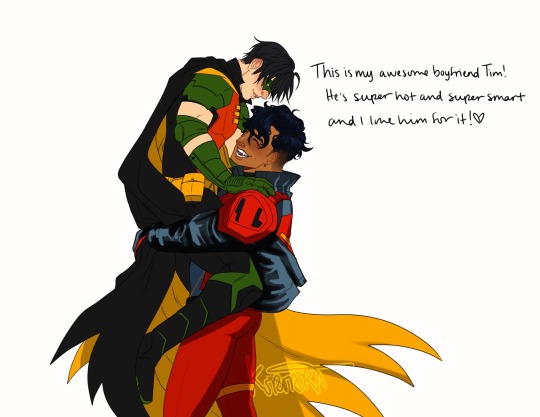
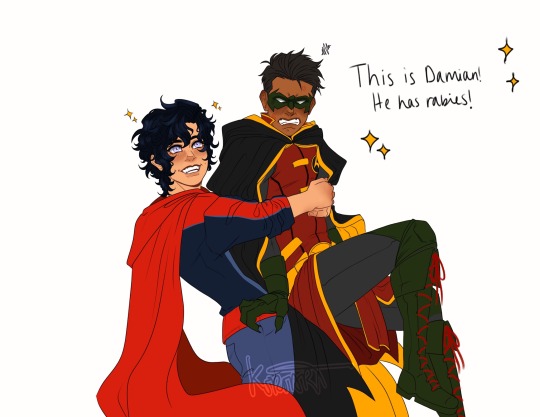
I put way too much effort into this ( based on this meme, it wouldn’t leave me alone until it was drawn — I am freee )
22K notes
·
View notes
Text
The real reason your sapient dragon character needs a "rider":
Dragons on the wing are vulnerable to being mobbed by smaller, more agile flyers, particularly in your large rear blind spot, like a bird of prey being mobbed by crows. Having a human armed with a long spear perched on your back helps to dissuade anyone from getting any funny ideas.
Breath weapons are impressive enough on the ground, but in flight they're really only good for strafing stationary targets; trying to use your breath weapon in an aerial dogfight is a good way to get fire up your nose. A real fight calls for sterner measures – and, concomitantly, a crew to aim and reload the cannons.
In today's competitive world, it's not enough to devour a flock of sheep and call it a day if you want to keep your edge. You're accompanied at all times by a qualified personal alchemist tasked with carefully regulating your internal furnace to ensure peak performance, and sometimes you even listen to them.
No dragon of any quality would be caught dead without their valet. It's not as though you can announce your numerous long-winded titles yourself when introductions are called for, can you? You suppose next you'll be expected to pick up the spoils of your conquests yourself, like a common brigand. Perish the thought!
39K notes
·
View notes
Text
im only saying this once
the only acceptable jobs for spider-man
broke high schooler
broke college student
freelance photographer
high school teacher
unpaid intern
pizza delivery guy
research assistant for doomed scientific project
guy who stands on street and spins sign for quiznos
being spider-man
and thats IT i dont want any of this “hes a genius tech ceo making millions” SHIT. Spider-man is BROKE and he missed rent this month and he has a tiny apartment and thats how its MEANT TO BE. he doesnt make money because he is our Friendly Neighbourhood Spider-man and not fucking Tony Stark.
187K notes
·
View notes
Text
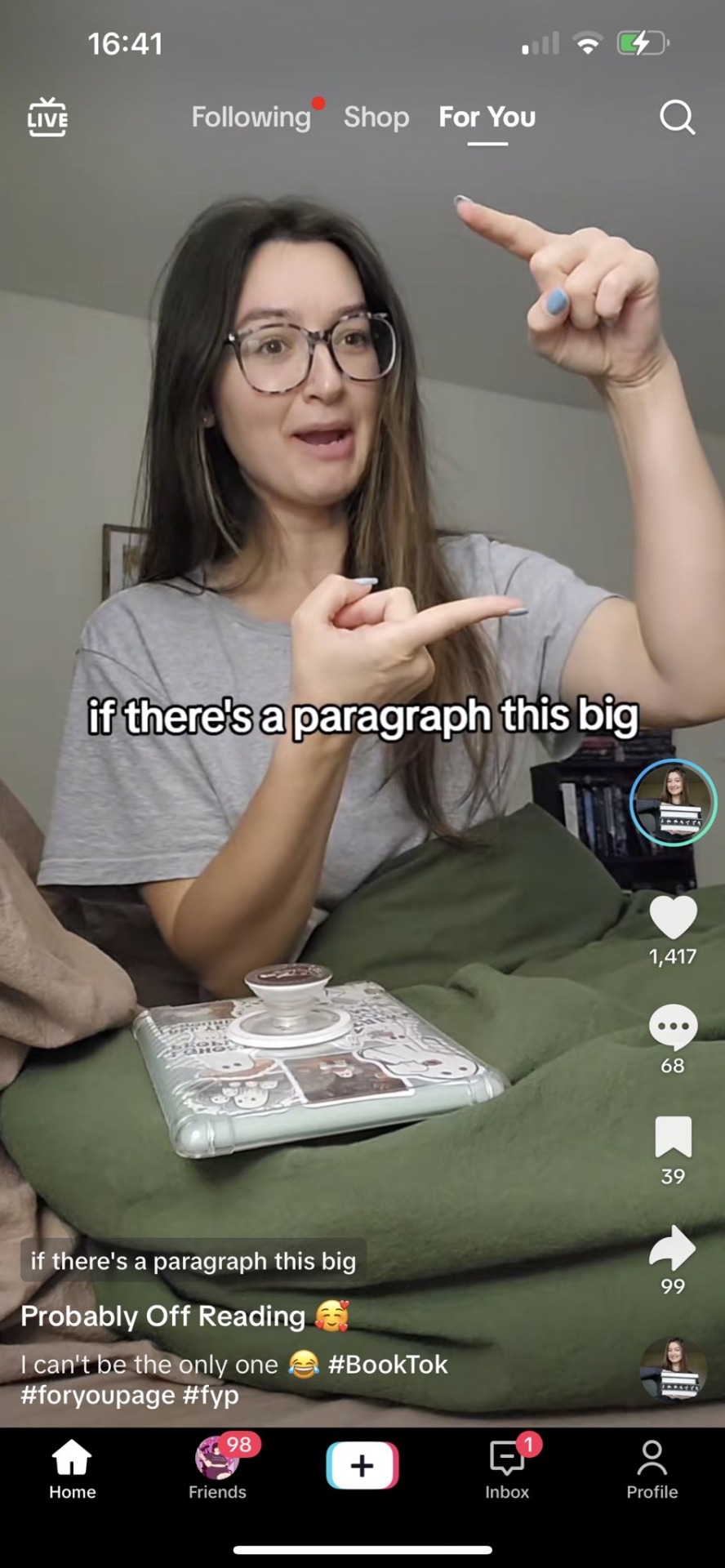


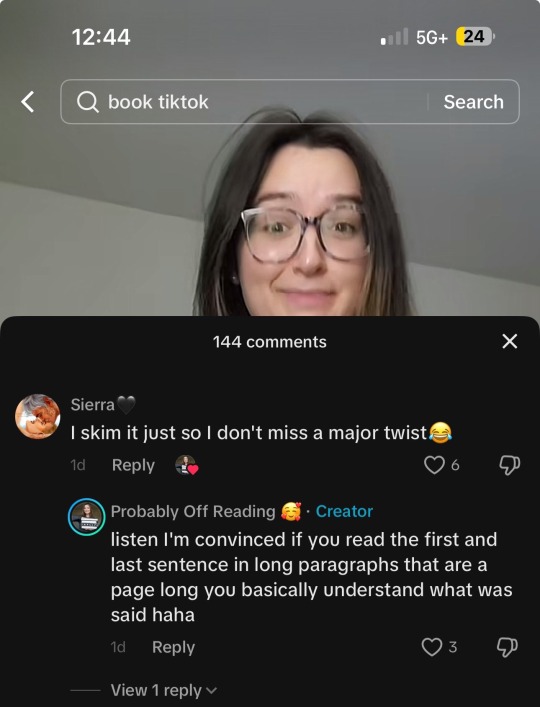
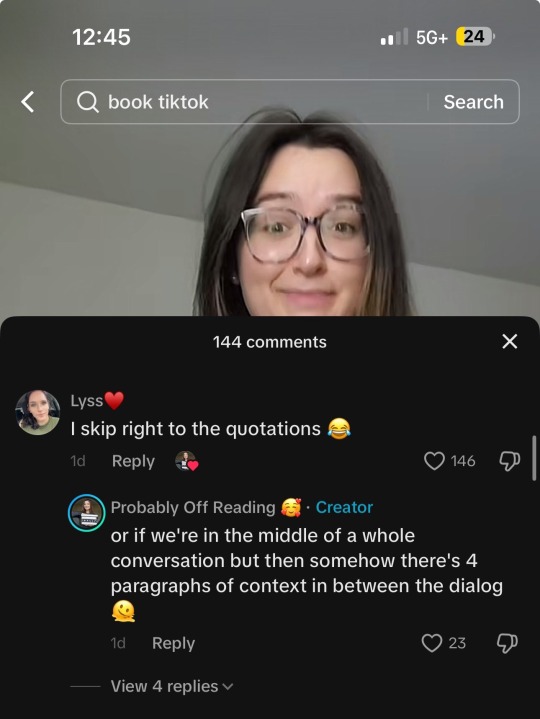
Do they know that reading is not mandatory? Nobody is forcing them to read?
28K notes
·
View notes
Text
this is gonna sound stupid but i’m amazed at baby capybaras bc they really truly are baby capybaras. there r so many animals you guys. so many where the babies look like tiny primordial creatures compared to the mature ones but baby capybaras r just little capybaras. they just start out like that. you know what i mean
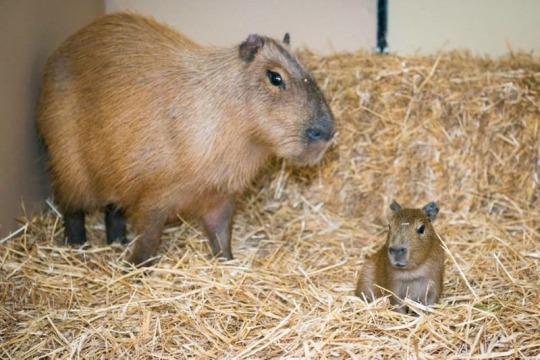
75K notes
·
View notes





